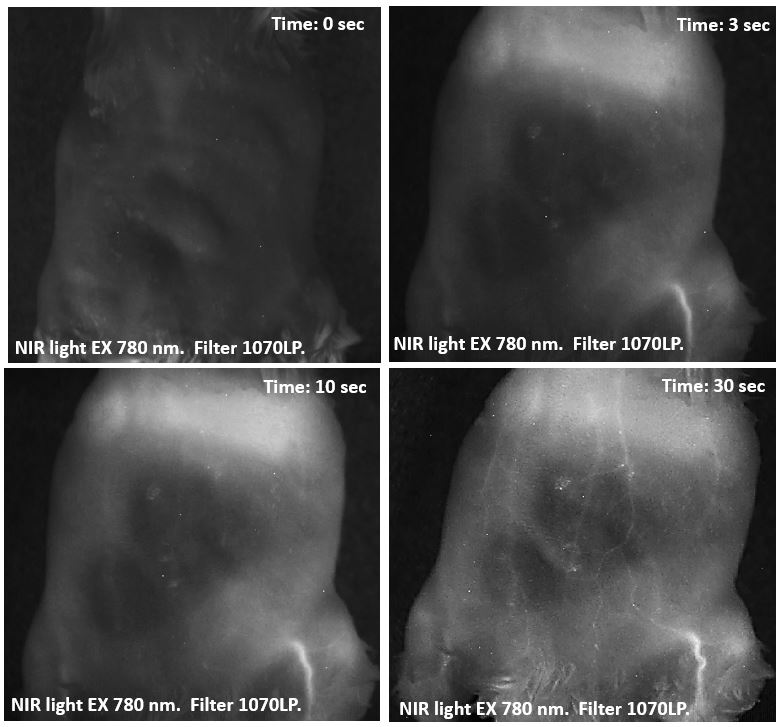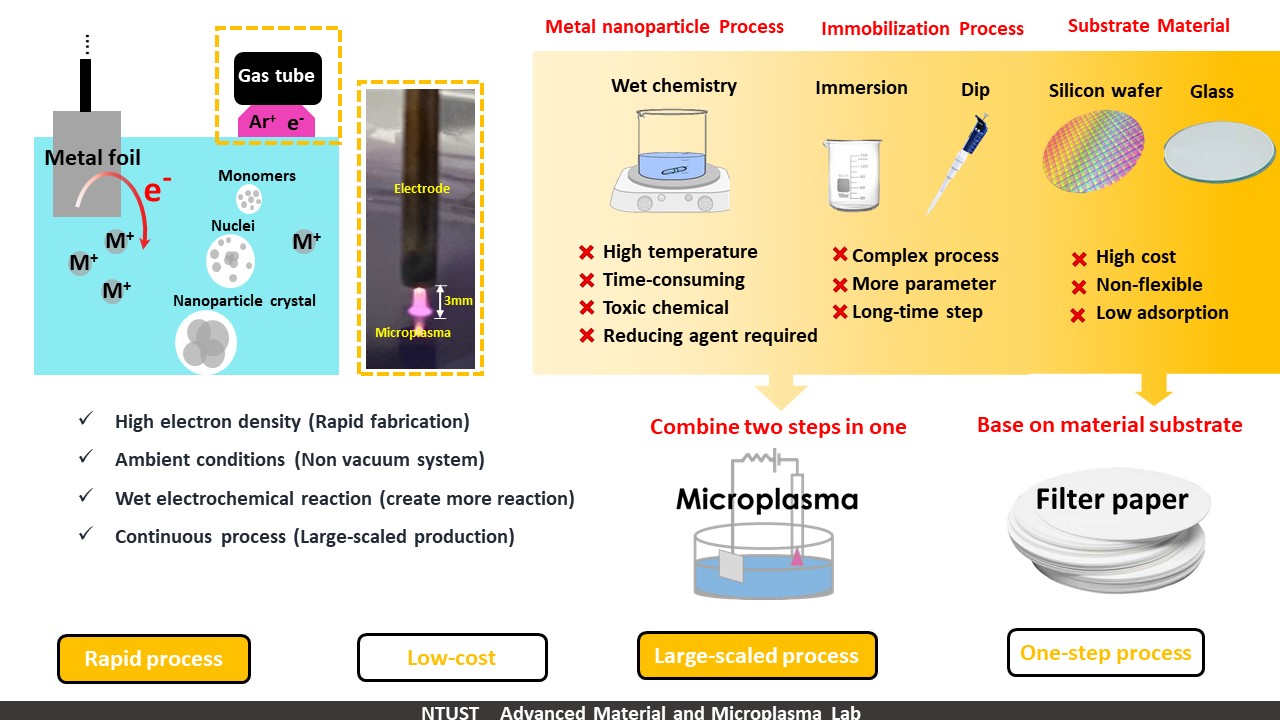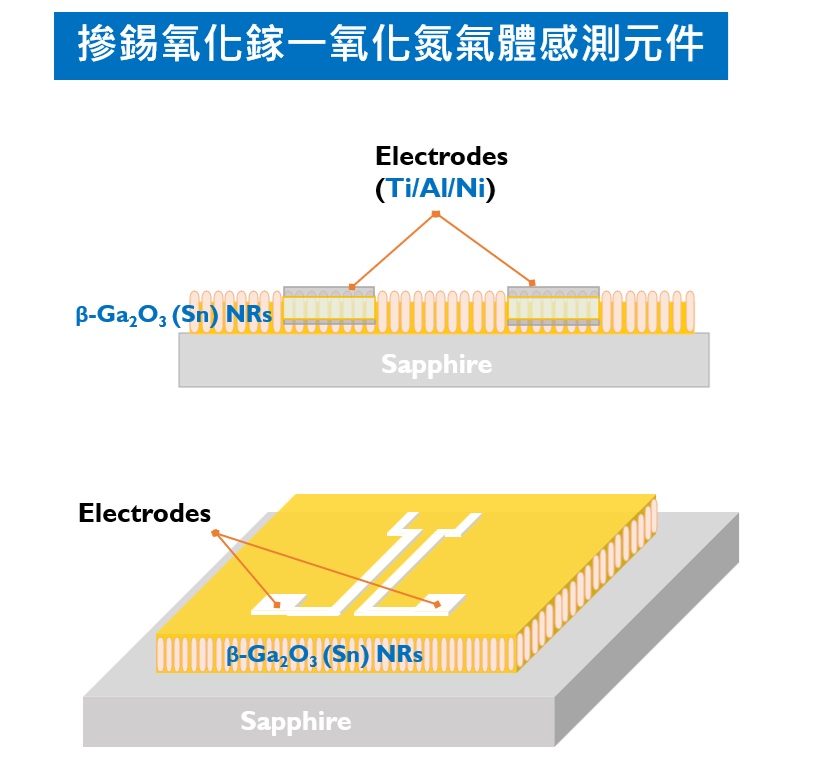High-brightness fluorescent gold nanoclusters infrared imaging agent technology with clinical application potential


In current research, our team has synthesised a surface-modified water-phase gold nanoclusters, red-shifted to 900-1300nm and the emission peak is centered at ~915 nm. The emission intensity as well as tissue penetration is enhanced and the core size of the nanomaterial after surface modification is maintained at ~2 nm. It has several advantages: a wider light emission range, anti-protein adsorption, and biocompatibility. Moreover, the size regulation and metabolism will enable faster excretion from the body. In the future prospects, there is a intraoperative target-specific core substrate, with a functionalized surface chemistry, which is capable in locating the destination site of the cancer/ or lesion, which could provide an extended bio-imaging of the tissues to surgeons. The development of these type of unique medical imaging agents have been continued to progress.
The gold nanoclusters are synthesised by modifying in the hydrophilic to accomplish short-wave infrared (SWIR) range from near infrared range in the light-emitting position. It could become one of the new generation fluorescent nanomaterials, which is suited with non-toxic water-phase processing and biocompatibility. It is a pleasing core nanomaterial as compared with the current clinical usage of ICG, in addition to the stable structure and longer fluorescent imaging clarity and longer blood circulation time. It has the close proximity to the clinically used fluorescent contrast nano-agents.
The hydrophilic fluorescent gold nanoclusters developed by the research team grasp the advantages in size variations and the characteristics of the light emitting position, and also give fluorescent gold and SWIR light imaging opportunities to create unprecedented biomedical imaging opportunities. Inclusive of non-contact life signal monitoring, microvascular flow imaging map, real-time metabolic imaging observation, molecular target imaging, etc., all prove that shortwave infrared has shown its potential in the new generation of biomedical imaging and will play a key role in the future.
線上展網址:
https://tievirtual.twtm.com.tw/iframe/16494c5a-c30f-4b22-872f-cd6b03c71c62?group=23bfb1fa-dd5b-4836-81a1-4a1809b1bae5&lang=en
After five decades, CYCU has developed with support from all members of the Board of Trustees, as well as immense contributions from past presidents and administrators, Kuo Ke-tee, Hsieh Ming-shan, Han Wei, Yuan Ta-nien, Yin Shiu-hau, Chang Kwang-cheng , Hsiung Shen-kan, Cheng Wan-lee, Chang Kwang-cheng and Lee In-Ming who represents stages in CYCU creation, foundation, growth, steadfastness, and expansion. The University enrolls students in eight-granting school and colleges, such as the College of Science, Engineering, Business, Design, Electrical Engineering and Computer Science, Humanities and Education, the School of Law, and Intelligent Computing and Quantum Information. The university offers 54 graduate programs and 13 Ph.D. programs in 36 departments. There are more than 140,000 alumni and most of them devote their best to the progress of society.

Utilization of novel chemical displacement environmental protection coating technology to be applied on RFID antenna production
Cellulose nanofiber film for oil-repellent and anti-fingerprint applications without fluorinated compounds

Three dimension nanoporous nanomaterial Microplasma-Enginnered assemblies on paper substrate for hydrogen gas production , surface-enhanced Raman scattering and catalytic reduction

A novel high-performance Sn-doped gallium oxide thin-film nitric oxide gas sensor for applications in smart healthcare and environmental monitoring
Technology maturity:Experiment stage
Exhibiting purpose:Product promotion、Display of scientific results
Trading preferences:Technical license/cooperation、Negotiate by self
*Organization
*Name
*Phone
*Main Purpose
*Discuss Further
*Job Category
*Overall Rating
*Favorite Area
*Key Tech Focus
*Willing to Receive Updates?
Other Suggestions
Coming soon!